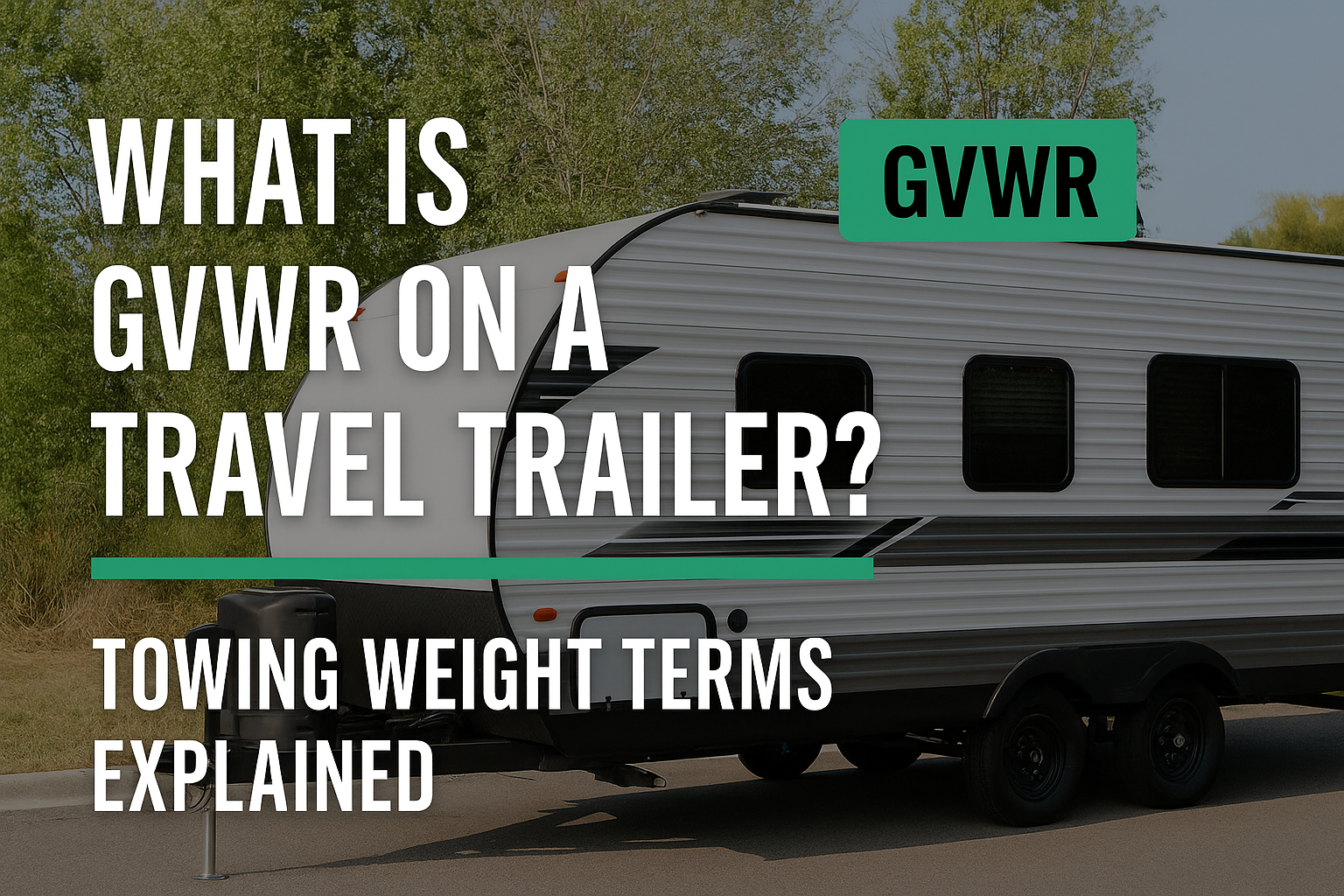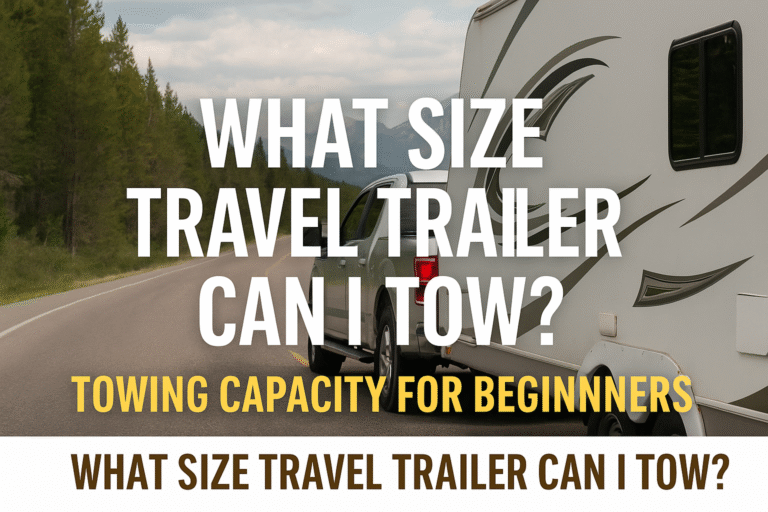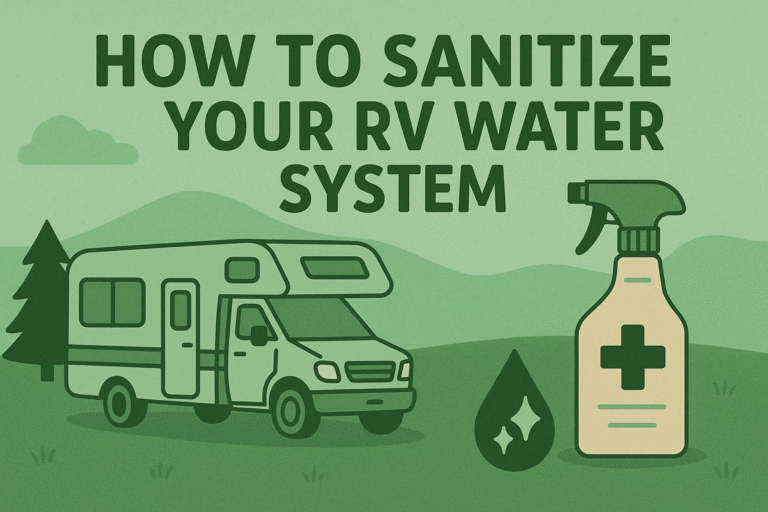
If you're shopping for a travel trailer or trying to figure out what your vehicle can tow, you've probably seen a confusing alphabet soup of towing terms: GVWR, dry weight, tongue weight, curb weight... sound familiar? Understanding GVWR is one of the most important parts of choosing the right camper — and towing it safely.
In this post, we’ll break down what GVWR actually means, how it compares to dry weight, and how to calculate safe towing limits. If you're just starting out, be sure to also check our towing calculator for travel trailers.
📚 Table of Contents
🧱 What Does GVWR Mean?
GVWR stands for Gross Vehicle Weight Rating. It’s the maximum total weight a trailer is rated to carry — including its own weight plus any cargo, water, propane, and accessories you load into it.
Think of it as the “do not exceed” weight limit stamped by the manufacturer. It’s not just a suggestion — going over GVWR can be illegal, void warranties, and lead to safety issues like trailer sway or tire blowouts.
⚖️ GVWR vs Dry Weight vs Payload
- Dry Weight: The empty trailer with no cargo, water, propane, or people.
- Payload Capacity: How much weight you can safely load into the trailer (GVWR - Dry Weight).
- GVWR: Dry weight + payload. The total max trailer weight allowed.
Example: If a travel trailer has a dry weight of 5,000 lbs and a GVWR of 6,200 lbs, that means you can carry up to 1,200 lbs of gear, water, propane, and supplies inside.
🚛 Where to Find a Trailer’s GVWR
Look for the weight rating sticker — usually found on the frame near the tongue or by the entry door. It will list:
- GVWR (Gross Vehicle Weight Rating)
- GAWR (Axle Ratings)
- Unloaded Vehicle Weight (UVW or Dry Weight)
- Cargo Carrying Capacity (CCC)
🛠 Why GVWR Is Critical for Towing
When figuring out if your vehicle can tow a trailer, you shouldn’t just look at dry weight. You need to consider what the trailer will weigh fully loaded — and that’s where GVWR comes in.
Most campers add 800–1,500 lbs of gear, water, and propane. That means your towing decision should be based on GVWR or at least the expected loaded weight.
📏 GVWR and Tongue Weight
Tongue weight (the downward force a trailer puts on the hitch) is typically 10–15% of the trailer's actual loaded weight. If your GVWR is 6,000 lbs, tongue weight might range from 600–900 lbs — and this counts against your vehicle’s payload.
If that sounds confusing, we made it simple in our travel trailer towing calculator.
🛻 Recommended Gear to Stay Safe
Once you're towing near the top of your limits, it's critical to have the right hitch and brake setup. These are beginner-friendly and highly rated:
- CURT Weight Distribution Hitch — for better balance and less sway
- Tekonsha P3 Brake Controller — trusted electric braking
- CIPA Universal Towing Mirrors — see around your rig
🙋♂️ FAQ: Trailer Weight Ratings
What happens if I exceed GVWR?
You risk mechanical failure, poor handling, tire blowouts, or even being fined if pulled over at a weigh station.
Is GVWR the same as towing capacity?
No. GVWR is for the trailer. Towing capacity is for your vehicle. You must match a trailer’s GVWR to a vehicle’s towing rating.
Can I safely tow a trailer that’s under my vehicle’s towing capacity but over its payload?
No — that’s a common mistake. Payload includes tongue weight, people, and gear. You must be under both limits.
Where can I calculate everything?
Use our free towing calculator to check your setup in seconds.
🚦 Final Thoughts: Don’t Ignore GVWR
GVWR is more than a number — it’s a critical safety spec that determines how much your trailer can carry. Whether you’re buying new, used, or renting, understanding GVWR helps you avoid accidents, blown tires, or costly mistakes.
And remember, the trailer isn’t the only part of the equation — your vehicle’s towing capacity and payload are just as important. Not sure if you’re in the safe zone? Run the calculator here.






